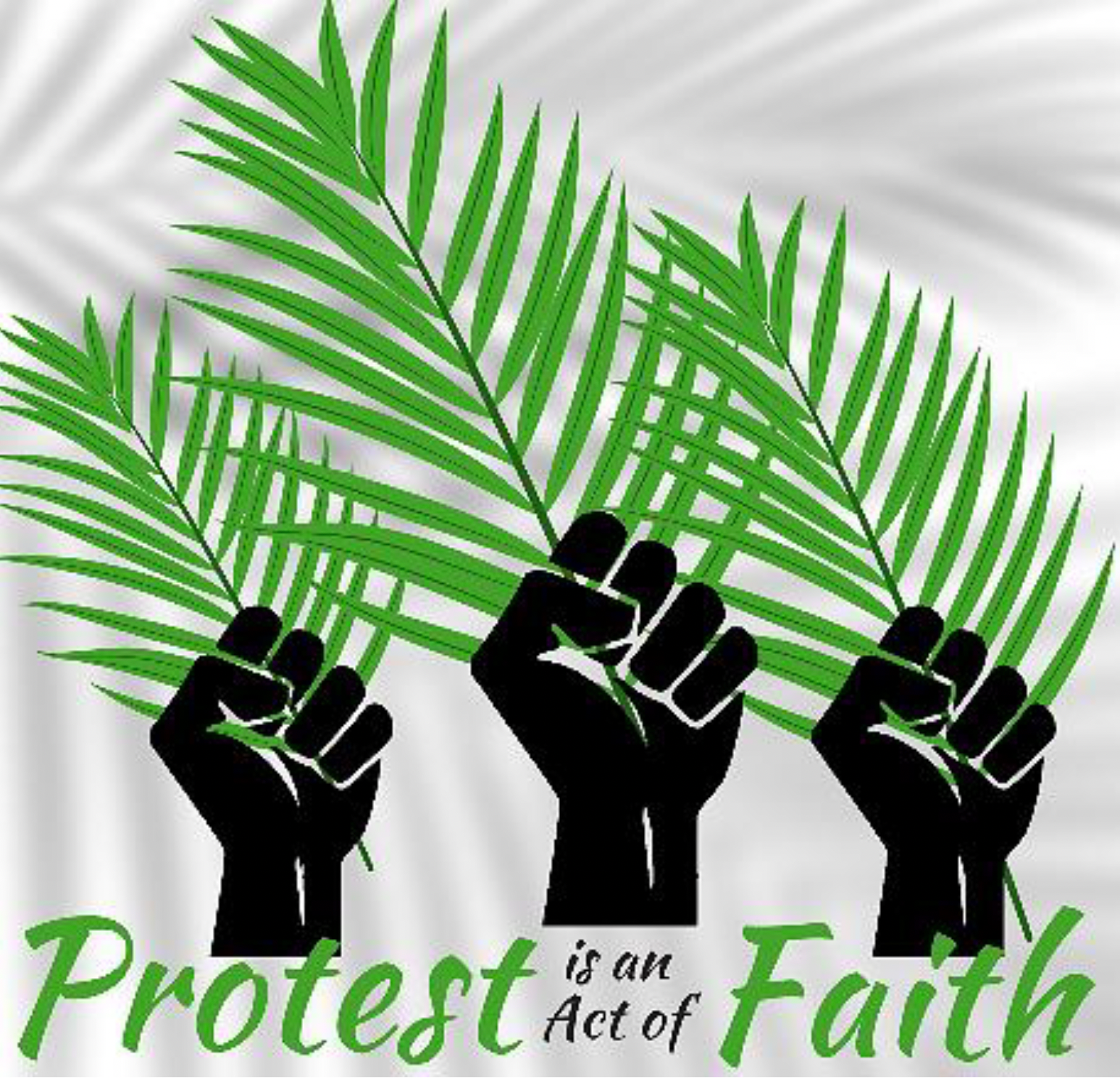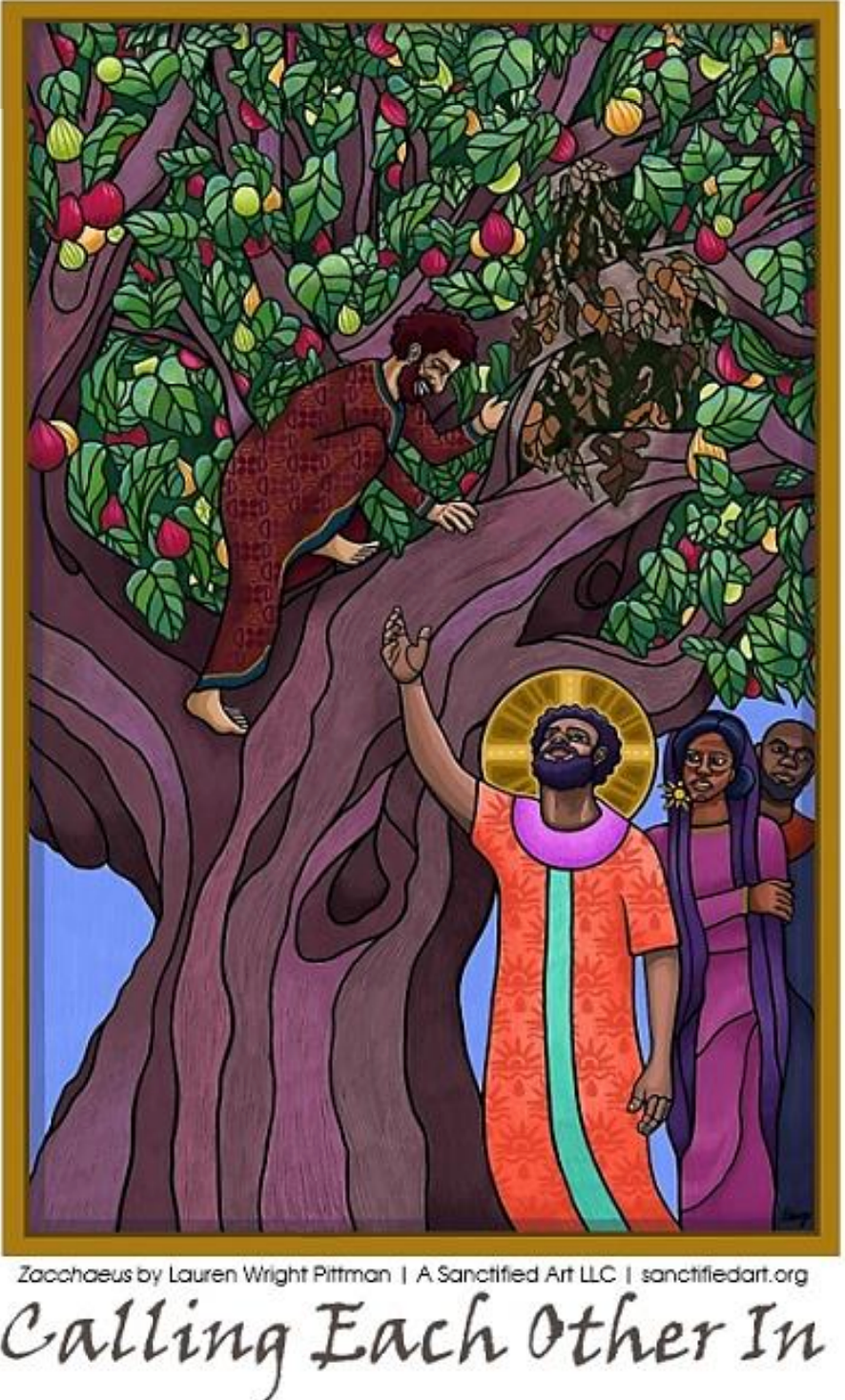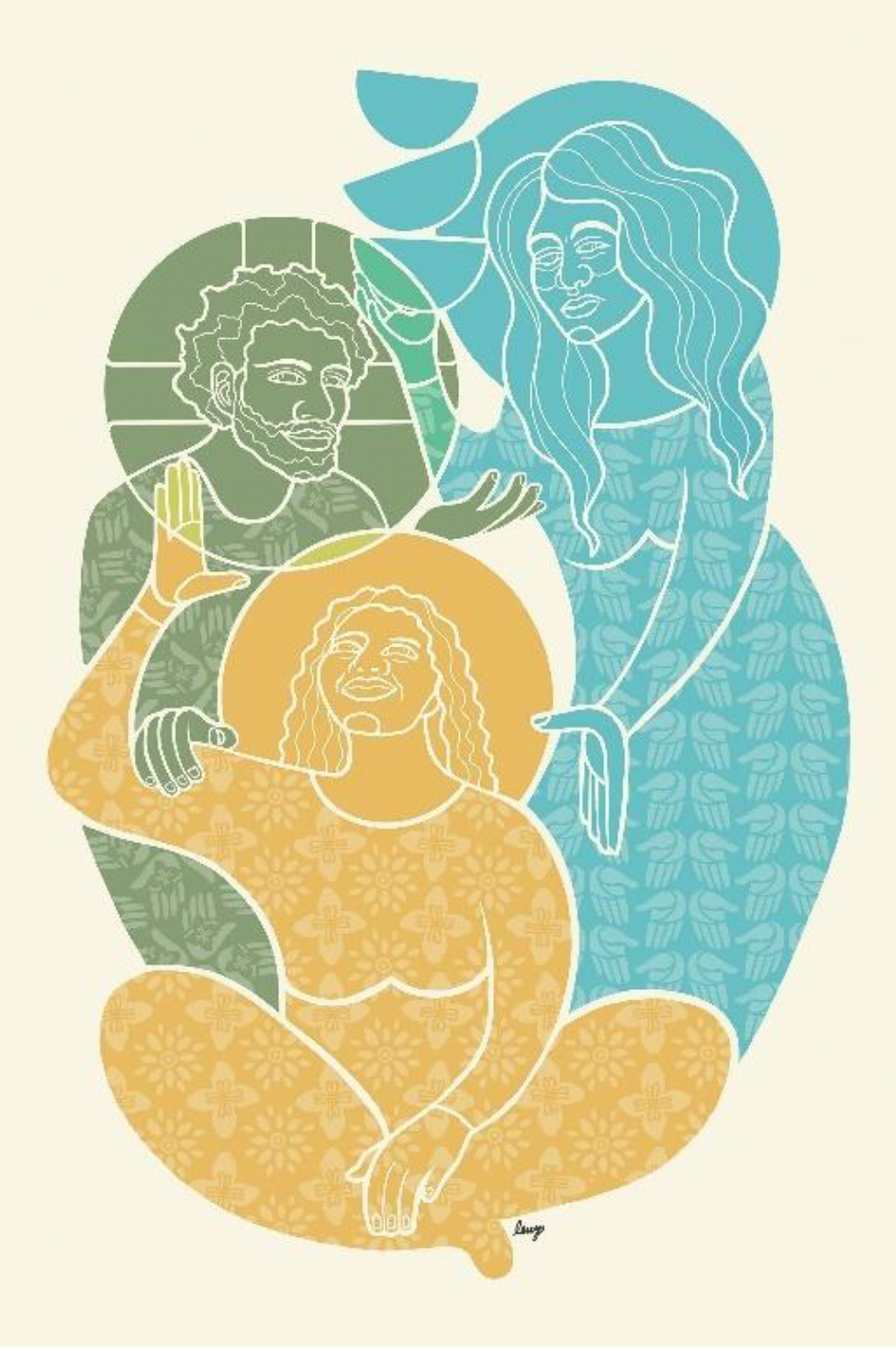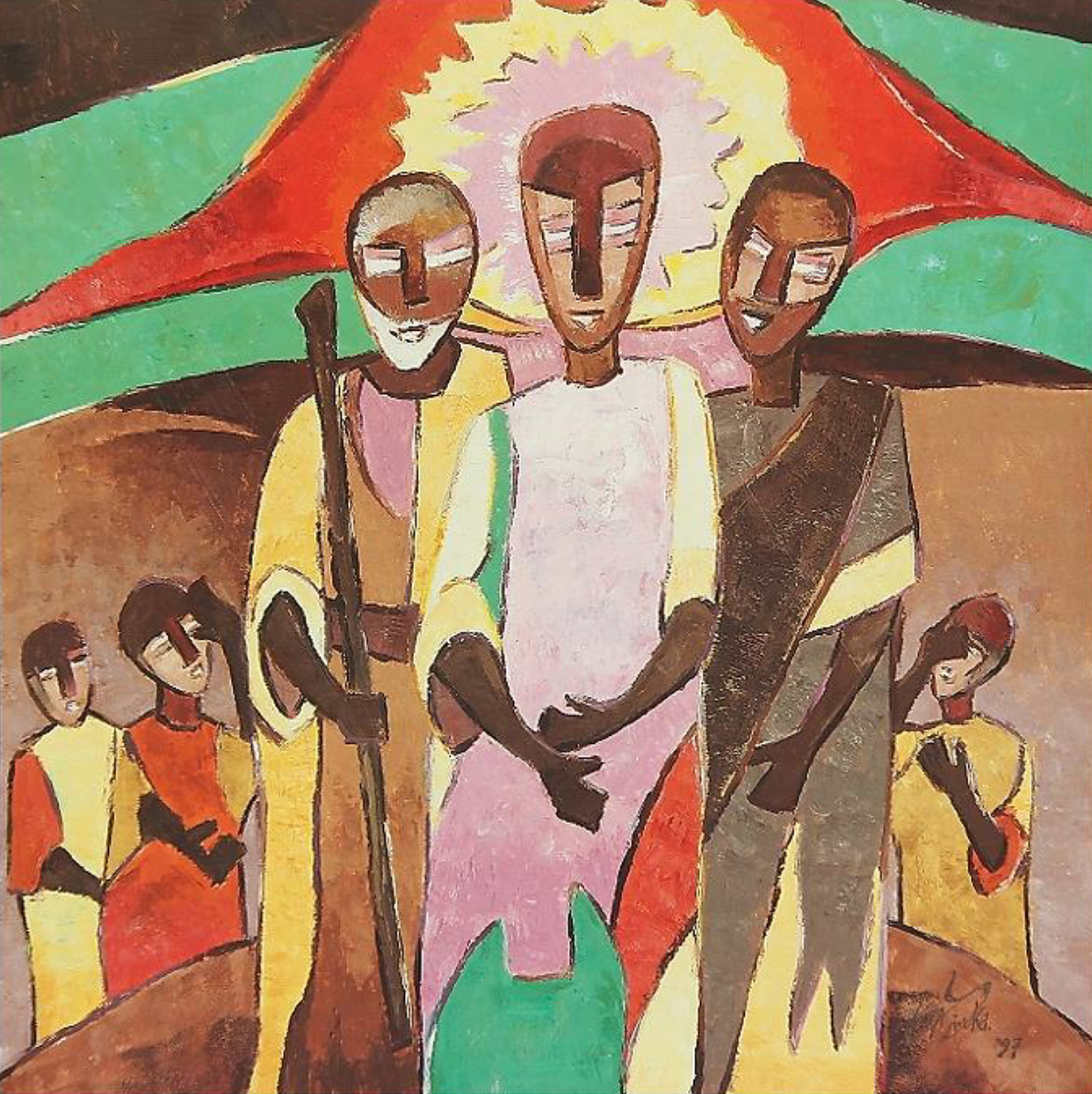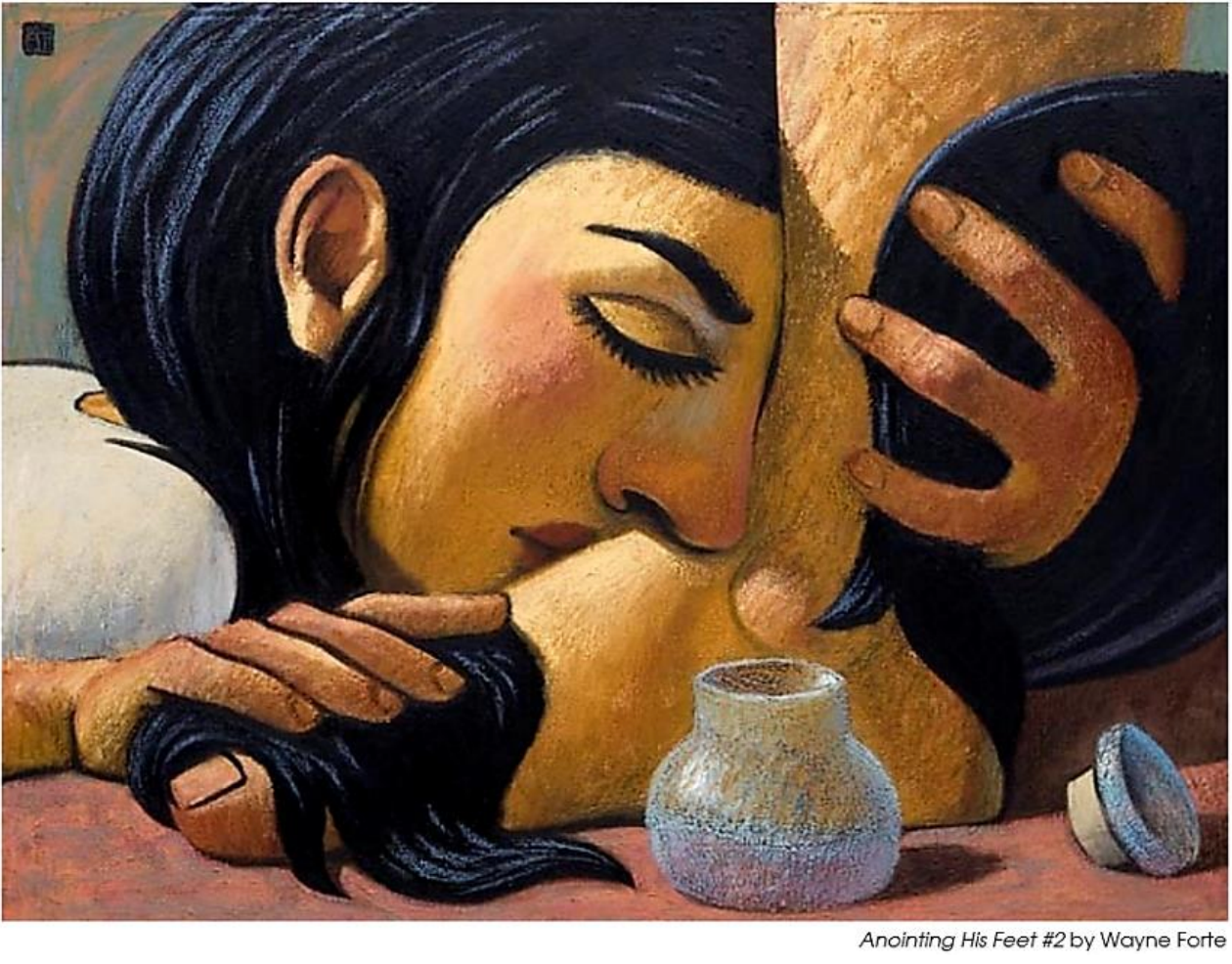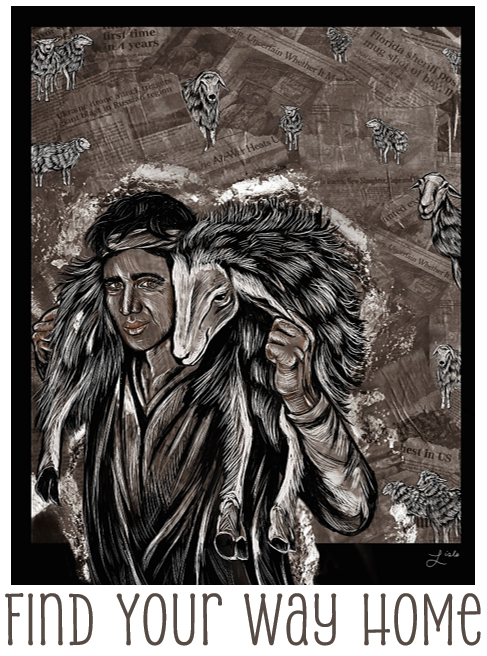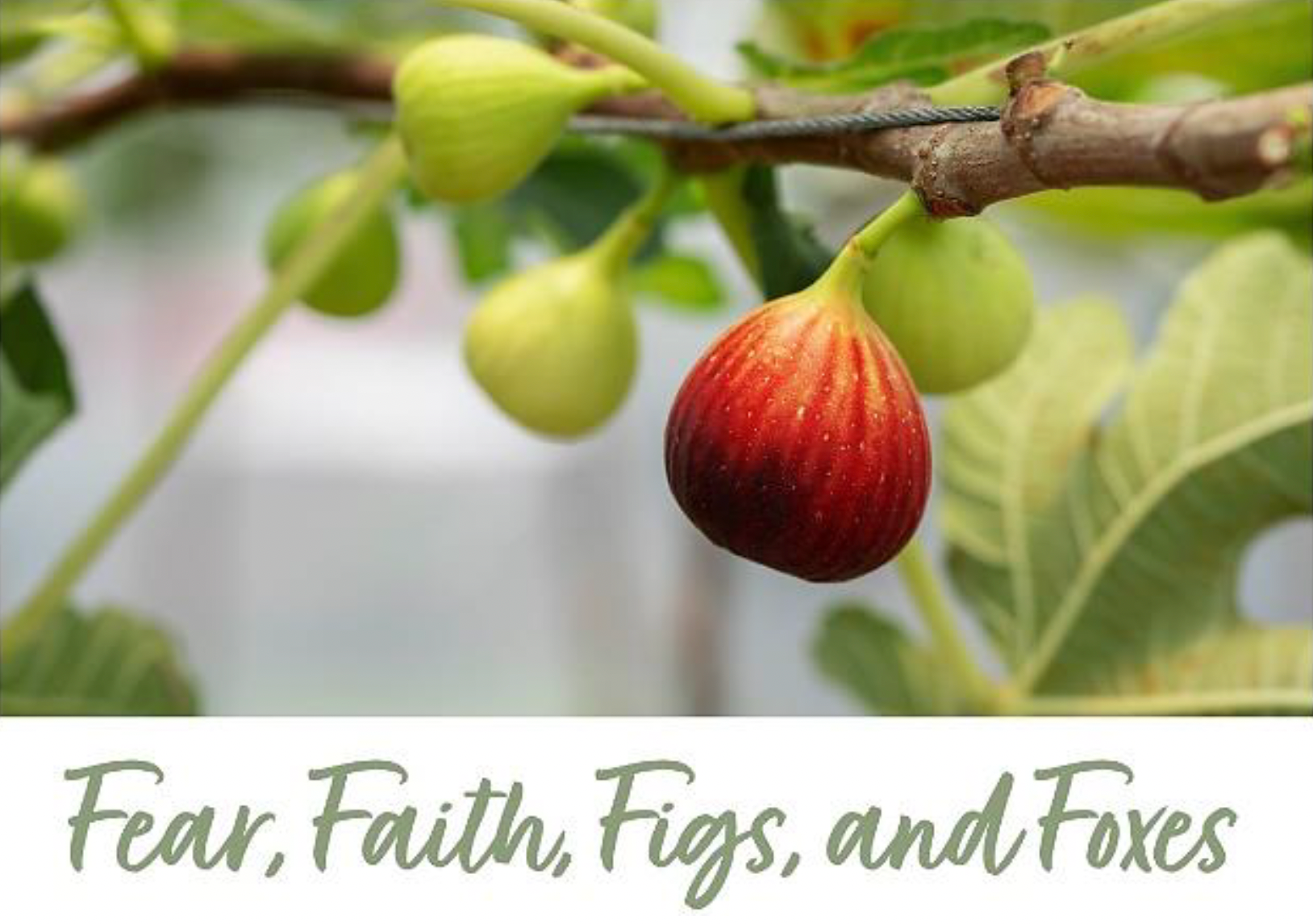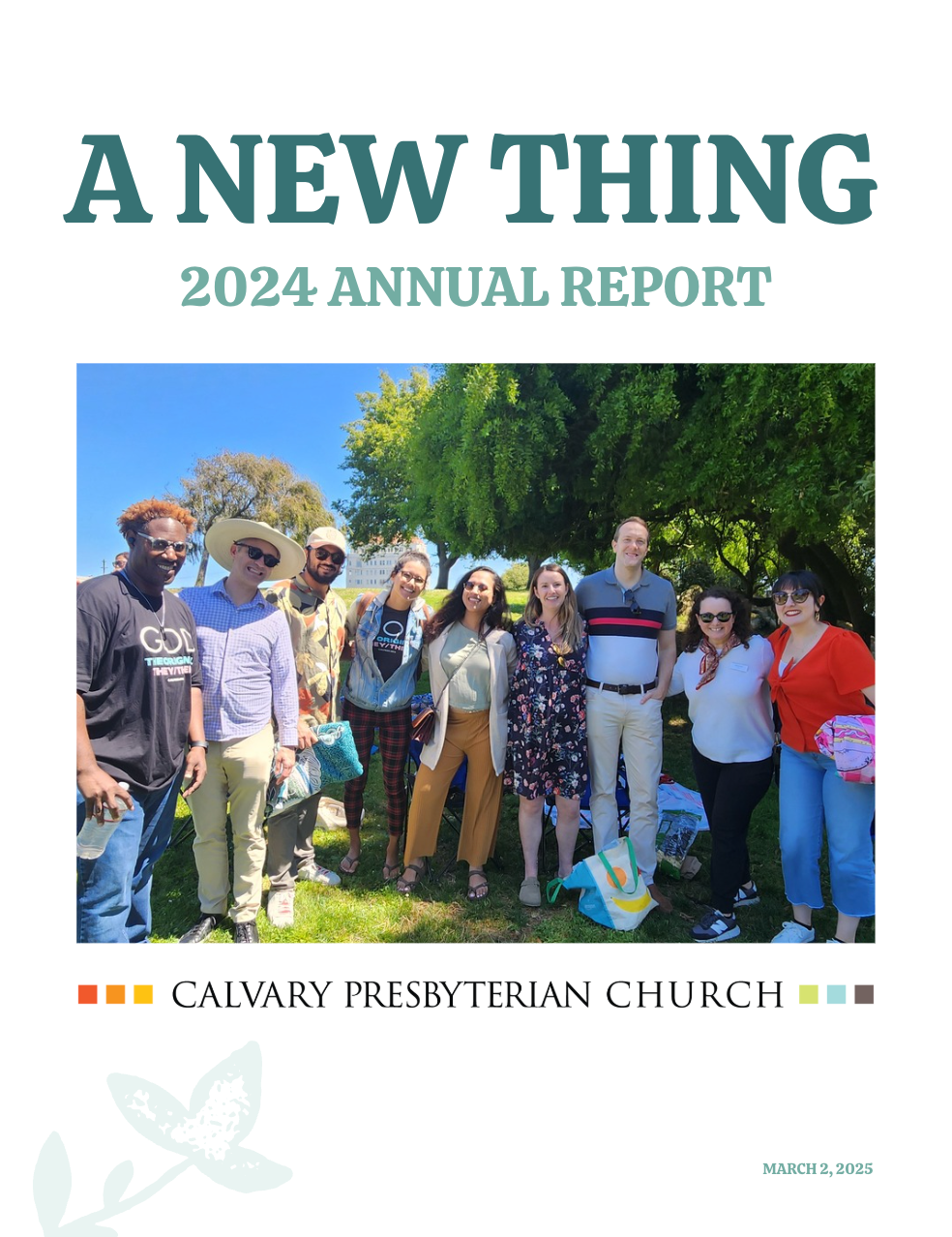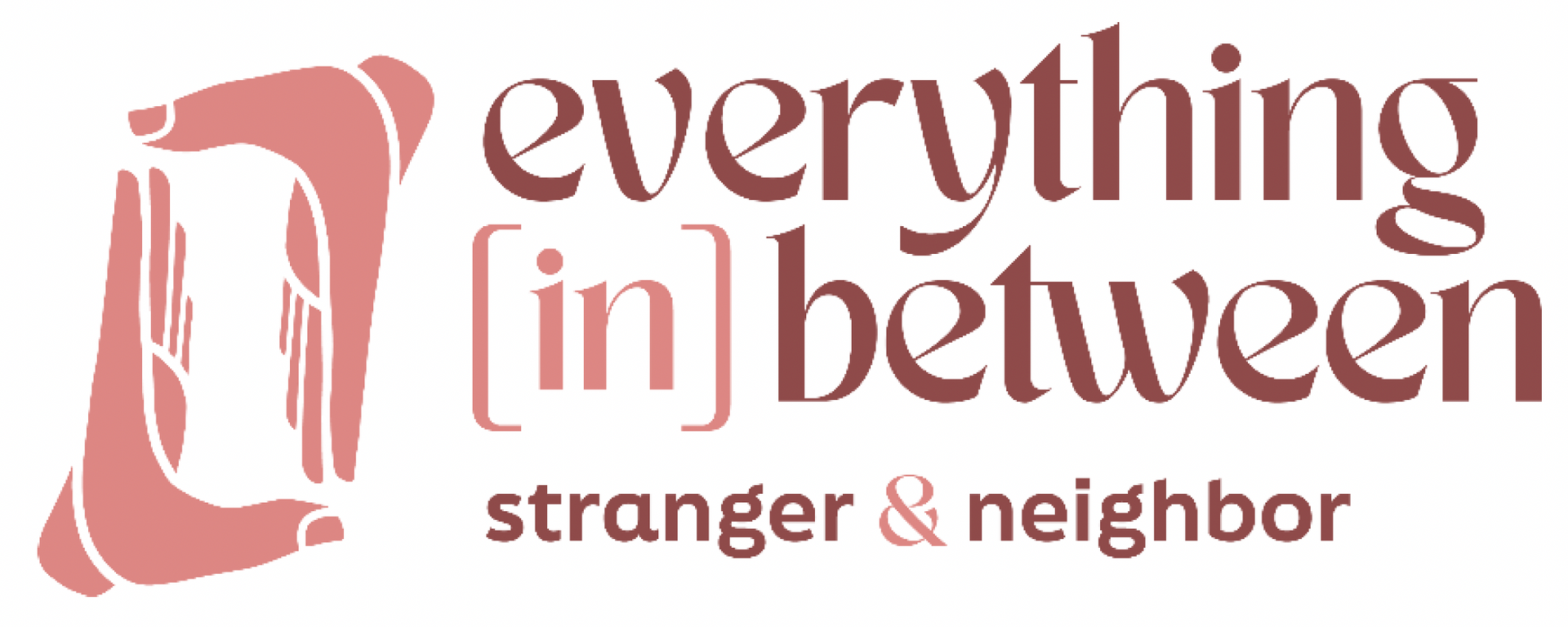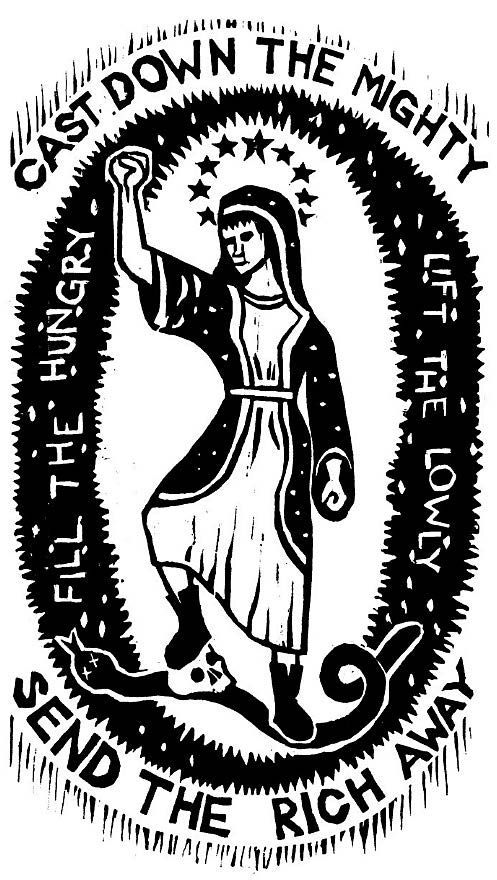Sermon 01.14.2024: Sinners in the Hands of a Hangry God
Religious leaders wondered why Jesus ate with "sinners and tax collectors." In the United States, there was a time when lunch counters were segregated, and most white Americans could not fathom dining with black Americans. But we are all one human family, and we are all sinners in the hands of a God who invites us to feast at the welcome table. Have you eaten? Are you hungry? Come and dine with the divine!
Scripture
Mark 2:13-22
Jesus went out again beside the sea; the whole crowd gathered around him, and he taught them. As he was walking along, he saw Levi son of Alphaeus sitting at the tax booth, and he said to him, “Follow me.” And he got up and followed him. And as he sat at dinner in Levi’s house, many tax collectors and sinners were also sitting with Jesus and his disciples—for there were many who followed him. When the scribes of the Pharisees saw that he was eating with sinners and tax collectors, they said to his disciples, “Why does he eat with tax collectors and sinners?” When Jesus heard this, he said to them, “Those who are well have no need of a physician, but those who are sick; I have come to call not the righteous but sinners."
Now John’s disciples and the Pharisees were fasting; and people came and said to him, “Why do John’s disciples and the disciples of the Pharisees fast, but your disciples do not fast?” Jesus said to them, “The wedding guests cannot fast while the bridegroom is with them, can they? As long as they have the bridegroom with them, they cannot fast. The days will come when the bridegroom is taken away from them, and then they will fast on that day.
“No one sews a piece of unshrunk cloth on an old cloak; otherwise, the patch pulls away from it, the new from the old, and a worse tear is made. And no one puts new wine into old wineskins; otherwise, the wine will burst the skins, and the wine is lost, and so are the skins; but one puts new wine into fresh wineskins.”
Sermon Text
Once upon a time, in the year 1741, Jonathan Edwards wrote a formidable sermon called, “Sinners in the Hands of an Angry God” which ignited the First Great Awakening. It was all fire and brimstone, and I had to read it in high school as part of my literature class. I’m not sure if any of you did as well.
He writes:
The God that holds you over the pit of hell,
much as one holds a spider, or some loathsome insect over the fire,
abhors you, and is dreadfully provoked:
his wrath towards you burns like fire;
he looks upon you as worthy of nothing else, but to be cast into the fire.[1]
Okay. Well, suffice it to say, Rev. Edwards and I seem to have a slightly different understanding of God and certainly a very different preaching style.
I don’t quite know which gospel he was reading, but the God who comes to us in the person of Jesus Christ, never held someone upside down over a fiery pit because they were sinners.
In fact, the stories we often hear from the gospels, show us a Jesus who was more likely to invite a “sinner” to come sit around a fire with him, as they ate and drank and laughed together. Respectable people, religious leaders, wondered aloud:
“Why does he [Jesus] eat with tax collectors and sinners?” (Mark 2:16)
Some of Jesus’s closest friends were those considered “impolite company.”
There’s a list I saw that says,
This year, I want to be more like Jesus:
- Hang out with sinners.
- Upset religious people.
- Tell stories that make people think.
- Choose unpopular friends.
- Be kind, loving, and merciful.
- Take naps on boats.
So if you’re still looking for new year’s resolutions, maybe be more like Jesus, and add those to your list!
Last week, Marci talked about the fast-paced nature of Mark’s gospel,and all the “immediatelys” that are present. But it seems that Jesus was never too busy or too rushed to eat. Jesus made time to sit at dinner and share a meal with others.
When asked why his disciples don’t fast, Mark records that Jesus says something about a bridegroom (you can go back and read that in chapter 2), but I interpret all that to mean, “Because I’m the party, and the party’s here, and a party’s gotta have food!” or, you know, something like that…
All this to say, Jesus got hungry, and when Jesus got hungry, he ate, often in the company of those deemed unworthy or outcasts. So, instead of “Sinners in the Hands of an Angry God,” today’s sermon is entitled, “Sinners in the Hands of a Hangry God.”
Since 2018, the word “hangry” has been included in the Oxford English Dictionary.
Yep. That’s right; look it up. “Hangry” is defined as [quote] "bad-tempered or irritable as a result of hunger;” it is a combination of the words hungry and angry.
And before it was an official word, it was the reason why Mike and I would have our biggest arguments. I get hangry, and it ain’t pretty.
Maybe the disciples realized Jesus, too, could get hangry, so they made sure he ate!
Jesus, as the Bread of Life, however, didn’t let his hanger take over. Instead, he took care of his hanger, making the time to feed and to be fed.
Christmas wasn’t actually that long ago. And it’s fascinating to me that Jesus was born and laid in a manger. That’s not a crib! It’s a trough where horses and donkeys and cattle eat! He was swaddled and put in a dining table for animals!
And he was born in the city of Bethlehem, which means “house of bread” in Hebrew: bet (house)—lehem (bread).
Episcopal priest Rev. Dr. Jay says, “Christian faith did not begin with a text, or a doctrine, or an institution, but with [the] radical social practice: [of] table fellowship.”
So, you see, Jesus was all about food.
And, friends, sinners in the hands of a hangry God, are fed.
Sinners in the hands of a hangry God, are invited to the welcome table.
Sinners in the hands of a hangry God, are long-awaited and long-anticipated guests.
We are all sinners in the hands of a God who feeds us, nourishes us, and has a place for us at the table.
We may feel unworthy to sit with Jesus, but Jesus wants us there any way. And who are we to reject that invitation? We may feel like we don’t belong, that surely Jesus has more important people to entertain, but you are exactly who he calls. Are you really willing to deny that call?
If, however, you look around and think, “ugh, why is Jesus eating with these people?” then, maybe it’s time to re-examine what it means to follow Christ and perhaps we find ourselves, not as the sinners and outcasts invited by Jesus in this story, but as the scribes who are critical and disdainful of Jesus and the company he keeps.
Honestly, I think more and more, as the church, over its 2000 years has become institutionalized and accumulated wealth and power, that we are more likely to find ourselves in the story, not in the ranks of those who are overwhelmed by God’s grace, but with the scribes and the religious leaders who are offended and critical of Jesus’s ministry.
Brian McLaren writes, “Before Christianity was a rich and powerful religion, before it was associated with buildings, budgets, crusades, colonialism, or televangelism, it began as a revolutionary nonviolent movement promoting a new kind of aliveness on the margins of society.”
Jesus purposefully went to the margins of society to find disciples and folks to eat with.
Rev. Jay continues in his commentary to say:
The gospel accounts portray how often Jesus got in trouble for eating with the wrong people. In that first century context, those with whom you shared food mattered… [It was a] primary way to mark social dominance in a system of hierarchical value. Jesus cast those systems aside and ate with the wrong people. He did this because his people, and the wider society, the whole human race suffered from a debilitating social disease: oppression, fragmentation, isolation. And only a social response would suffice: all are welcome at the Table. This is ridiculously pedestrian and wildly profound: We must eat with the wrong people. It’s our only hope.
And here’s the thing. This very physical and relational act of eating can be a way of changing systems and righting injustices.
Because as we know, our God is not just hungry or hangry for physical food, but our God hungers and thirsts for justice and righteousness.
This weekend, we mark the life and legacy of the Rev. Dr. Martin Luther King, Jr. The civil rights movement had many ways it combated the segregation and inequalities faced by black Americans in this country. There were bus boycotts, marches, freedom rides, legal battles, and legislation. And there were lunch counter sit-ins where who you ate with and where you ate mattered.
In 1960, four black college freshman (that’s 18 and 19 year olds!) walked into a Woolworth’s store and quietly sat down at the lunch counter that was for whites only.[2] They were refused service but chose to stay, simply sitting there, until closing time.
The next morning, they came again with twenty-five more students. On the third day, sixty-three students joined the sit-in. On the following day, the students were joined by three white female students, and by the fifth day there were more than three hundred demonstrators.
These sit-ins continued for months and months, and at first, conversations with the store didn’t seem to go anywhere productive. Forty-five students were arrested and charged with trespassing. Those participating in the sit-ins had food and drinks poured on them. They were verbally and physically attacked.
When I look at pictures from these events, I am struck by the anger on the faces of those opposing desegregation, many of whom considered themselves good Christians. It almost looks like they’re yelling, “crucify him!”
And that’s just it, isn’t it? Because where would Jesus sit during the Civil Rights era?
And with whom would he eat? Would he even have been allowed to eat at Woolworth’s in the first place? After all, he was a brown-skinned man from the middle east.
I believe Jesus sat with the Greensboro four: Ezell Blair Jr., David Richmond, Franklin McCain and Joseph McNeil. These students’ bravery in the face of verbal and physical abuse led to integration in many stores even before the passage of the Civil Rights Act of 1964. Six months from the very first sit-in, the four freshmen boys returned and were served at Woolworth’s lunch counter.
Now, I’m sure there were many people who were not antagonizing those at the sit-ins physically or verbally, but who wondered quietly to themselves, “Can’t they just go eat somewhere else? Why do they wanna eat where white people eat anyways?
It’s not like they don’t have access to food! Don’t they have something better to do with their time?”
Friends, the reality is the pursuit of justice will always be met with resistance. Look at what happened to Jesus. Look at what happened to Dr. King.
But as Dr. King said, “The arc of the moral universe is long, but it bends towards justice.”
And we are here to help bend that arc and participate in what God is already doing in the world.
The coming of God’s kingdom is inevitable; in fact, it is already at hand.
Do we still have a long way to go? Absolutely.
But will we get there? Yes. Yes, we will.
And we will stop along the way to eat. Because no one wants me hangry. And eating is an act of justice, too.
So perhaps when all feels lost, or too big to handle, maybe invite someone to eat with you, share a meal at home or at a restaurant, break bread, come to the communion table on the first Sundays of the month, or join in a church community meal, or sign up to feed others at the Interfaith Winter Shelter.
Take part in the Bread of Life. Because Jesus’s ministry was all about food.
And if we can be just about where we eat, with whom we eat, and how we eat, we are already creating a new kind of world together.
Thanks be to God, Amen.
[1] Edwards, Jonathan, 1703-1758. Sinners in the Hands of an Angry God. A Sermon, Preached at Enfield, July 8, 1741, at a Time of Great Awakenings; and Attended with Remarkable Impressions on Many of the Hearers.
[2] https://www.loc.gov/exhibits/odyssey/educate/lunch.html
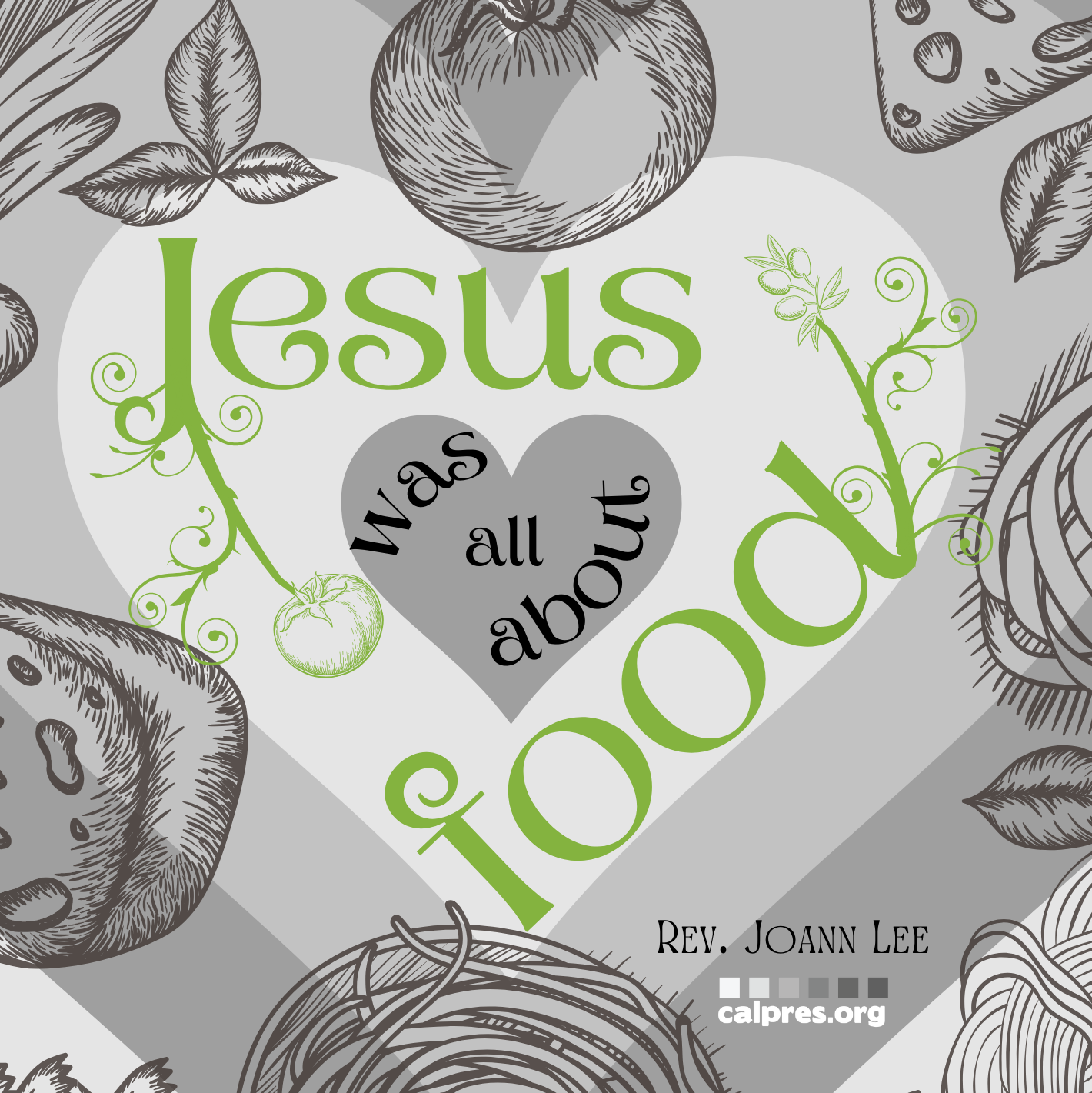
Art by Rachel Wolf
